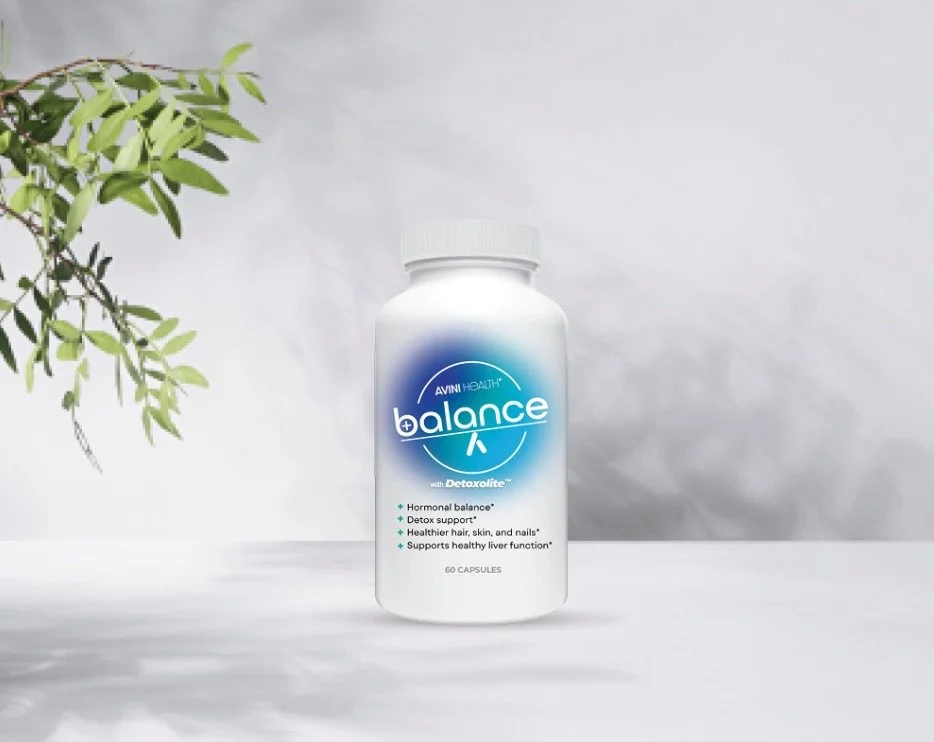Hair Loss or Hair Thinning Can Be Frustrating
Hair loss, especially hormonal hair thinning, often ties back to how your body metabolizes estrogens and androgens (hormones).
There is actually something you can do to change the hair loss!
Hair loss from menopause or hormone imbalance
Male hair loss from hormone imbalance
There are two key nutraceuticals, DIM and Calcium D-Glucarate, which can subtly shift these pathways in a way that my reduce excess DHT hormone influence and support healthier hair follicles.
This is how it works:
Understanding DHT & Hair Loss
DHT (dihydrotestosterone) is a potent androgen. In genetically sensitive individuals, high local DHT activity around the hair follicle triggers:
Miniaturization of follicles
Shortened growth (anagen) or growth phase
Increased shedding
Inflammation of the follicular environment
You do not always need high serum (blood) DHT. Many people have normal labs but overactive local conversion or heightened receptor sensitivity.
How DIM Helps: Shifting Estrogen & Androgen Metabolism
DIM (diindolylmethane) influences liver enzyme pathways, specifically Phase I detox (CYP1A1) and hormone receptor sensitivity. This directly affects DHT by balancing the hormonal “neighborhood.”
DIM can help hair growth in 3 key ways:
Reduces the conversion of testosterone to DHT.
DIM down-regulates 5-alpha reductase, the enzyme that creates DHT. This is the same pathway targeted by medications like finasteride - just gentler.
Increases “healthy” estrogen metabolites.
DIM enhances 2-hydroxy estrogen metabolites and reduces aggressive 16-OH pathways. Balanced estrogen lowers androgen dominance, helping reduce the hormonal pressure on follicles.
Decreases androgen receptor sensitivity.
Early research suggests DIM can lessen the “binding power” DHT has at the follicle, meaning even in DHT is present, it actually acts less aggressively.
Bottom line: DIM helps reduce DHT formation and reduce DHT impact.
How Calcium D-Glucarate Helps: Clearing Hormones That Drive DHT
Calcium D-Glucarate works primarily in Phase II detox, especially glucuronidation, which clears used hormones from circulation.
It supports hair growth by:
Lowering estrogen and androgen reactivation
In the gut, an enzyme called beta-glucuronidase can “unpack” estrogen and testosterone in liver already cleared - sending them back into circulation.
2. Reducing androgen load to less DHT formation
By lowering recirculating testosterone, there is less substrate available to be converted to DHT.
3. Supporting detox pathways involved in inflammation
A clearer hormonal terrain = less inflammatory signaling around hair follicles.
How DIM helps:
Reduces 5-alpha reductase, modulates estrogen metabolites, decreases androgen receptor activity Less DHT formation & activity
How Calcium D-Glucarate helps:
Improves elimination of hormones, lowers androgen recycling Lower androgen load to lower DHT pressure
Together, they reduce both how much DHT your body makes and how aggressively DHT acts of follicles.
Who benefits Most?
People with:
Hormonal acne + hair thinning
High stress with androgen dominance
PCOS-like patterns
Postpartum or perimenopausal shedding
High estrogen recirculation (poor detox pathways)
High DHT symptoms despite normal serum (blood) labs.
So What do I do now?
If any of the above sounds like something you are struggling with but you are not sure if this is right for you, please schedule an appointment with Dr. Lea Kelley
Click the button below to learn more about this product. The link contains a video from the Chief Biochemist, Rick Deitch, explaining the benefits of the formula.
Wait! There’s more! Microneedling is very effective
Microneedling vs topical Minoxidil
Microneedling treatments can actually “wake-up” the follicles to resume the growth phase of hair. It actually works better than topical Minoxidil.
“Wake up, grow, and stay in the growth phase longer”
It also allows for the better absorption of serums which can penetrate more deeply and allows the already amazing hair-growth benefits of microneedling even better!




